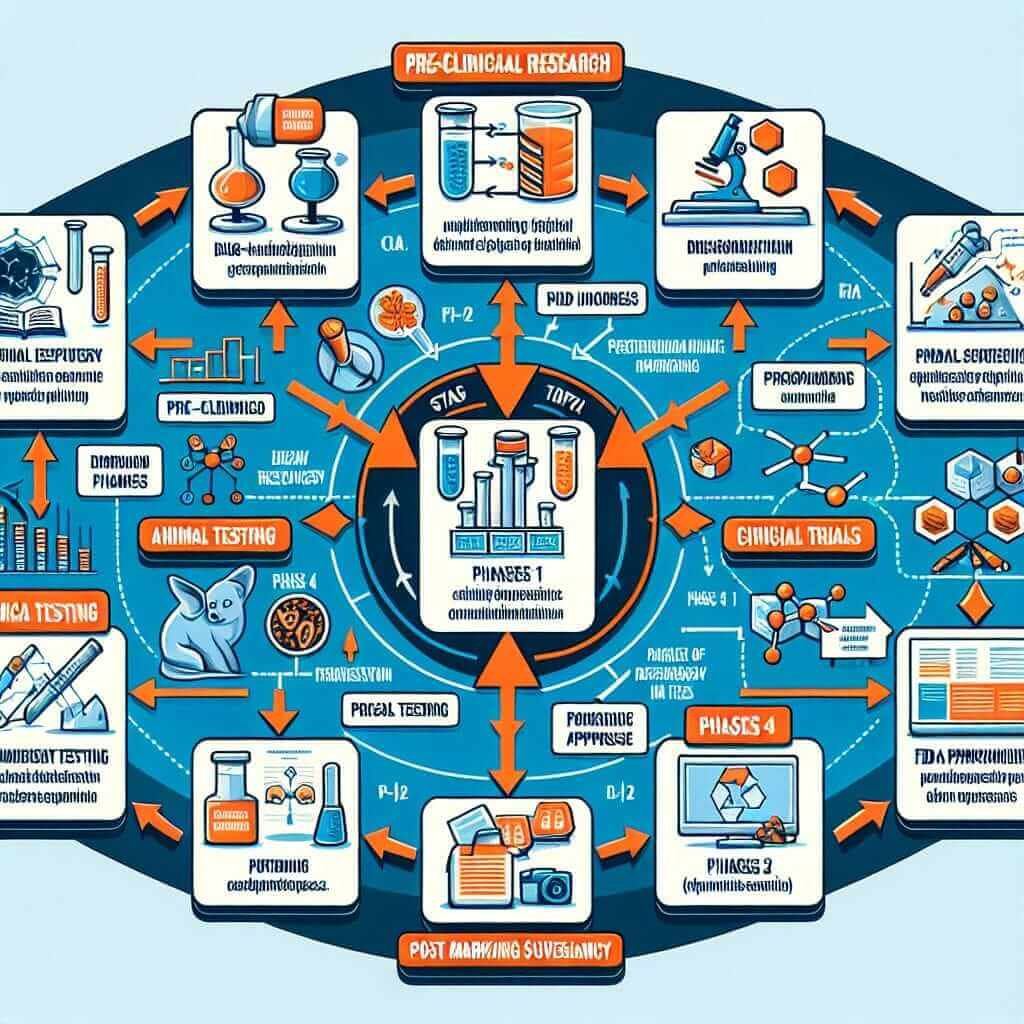The term “clinical trial” is a common one in the IELTS exam, especially in the Listening and Reading sections. It falls under the broader theme of health and medicine, a topic frequently explored in the IELTS. Understanding “clinical trial” and related vocabulary can significantly enhance your comprehension and vocabulary score.
Here are some synonyms for “clinical trial”:
- Medical research: (n) /ˈmed.ɪ.kəl ˈriː.sɜːtʃ/ – systematic investigation related to human health.
- Example: Advancements in medical research have led to the eradication of many diseases.
- Research study: (n) /ˈriː.sɜːtʃ ˈstʌd.i/ – a scientific investigation to answer specific questions.
- Example: The university is conducting a research study on the effectiveness of a new drug.
- Clinical study: (n) /ˈklɪn.ɪ.kəl ˈstʌd.i/ – research involving human participants to assess medical interventions.
- Example: Participation in clinical studies is crucial for medical advancements.
- Medical experiment: (n) /ˈmed.ɪ.kəl ɪkˈsper.ɪ.mənt/ – a scientific procedure to test a hypothesis related to health and disease.
- Example: Ethical considerations are paramount in medical experiments.
Now, let’s delve deeper into the meaning and usage of “clinical trial”.
Understanding “Clinical Trial”
What is a Clinical Trial?
A clinical trial /ˈklɪn.ɪ.kəl ˈtraɪ.əl/ is a type of research study that investigates the safety and effectiveness of new medical interventions, such as drugs, devices, or treatment procedures. These trials are crucial for determining whether a new treatment is safe, effective, and potentially better than existing options.
Why are Clinical Trials Important?
Clinical trials play a vital role in advancing healthcare by:
- Evaluating new treatments: They determine if a new treatment is effective and safe for human use.
- Improving existing treatments: They can identify ways to improve existing treatments or determine the most effective dosage or administration method.
- Understanding diseases: Clinical trials can provide valuable insights into disease mechanisms, progression, and potential risk factors.

“Clinical Trial” in the IELTS Exam
The term “clinical trial” and its related vocabulary are frequently encountered in the IELTS exam, especially in the Listening and Reading sections.
Listening Section
You might hear “clinical trial” in lectures, conversations about health, or news reports about medical breakthroughs.
- Example: In a lecture about the development of new vaccines, you might hear: “The vaccine underwent rigorous clinical trials before being approved for public use.”
Reading Section
Articles about medical research, health policy, or even biographical accounts of scientists might mention “clinical trials.”
- Example: “The article discusses the ethical considerations of conducting clinical trials in developing countries.”
Using “Clinical Trial” in Your IELTS Responses
Here are some ways you can use “clinical trial” effectively in your IELTS Speaking and Writing responses:
Speaking Part 2: Describe a time you read or heard about a medical discovery.
- “The article discussed a groundbreaking clinical trial that showed promising results for a new Alzheimer’s drug.”
Writing Task 2: Discuss the importance of investing in scientific research.
- “Clinical trials are essential for evaluating the safety and effectiveness of new treatments, and investing in research that supports these trials is crucial for advancing healthcare.”
Collocations with “Clinical Trial”
- Conduct a clinical trial: Researchers conduct clinical trials to test new treatments.
- Participate in a clinical trial: Patients can volunteer to participate in clinical trials.
- Double-blind clinical trial: In this type of trial, neither the researchers nor the participants know who is receiving the new treatment.
- Clinical trial results: The results of clinical trials are carefully analyzed to determine the effectiveness and safety of the treatment.
Idioms and Expressions Related to “Clinical Trial”
While “clinical trial” itself isn’t typically used in idioms, you can use these related phrases:
- “A shot in the dark”: Used to describe a treatment or solution that is not based on scientific evidence and is tried with no guarantee of success.
- “The new treatment was a bit of a shot in the dark, but the patient was willing to try anything.”
- “Hold the key to”: To have the potential to solve a problem or find a cure.
- “Researchers believe this new drug holds the key to curing the disease.”
- “Breakthrough”: A significant discovery or development.
- “The clinical trial led to a major breakthrough in cancer treatment.”
By familiarizing yourself with “clinical trial” and its associated vocabulary, you can demonstrate a strong command of language related to health and medicine, which is highly valuable for achieving a high IELTS score. Remember to practice using these terms in your speaking and writing to boost your confidence and fluency.